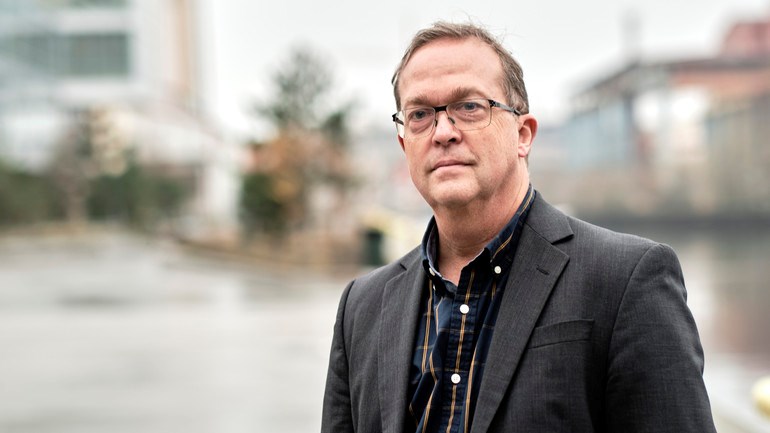No end to the war while Putin is in power

Bo Petersson, professor of political science and one of the directors of the research platform RUCARR – Russia, Ukraine and the Caucasus Regional Research at Malmö University.
There will be no negotiable solution to the war in Ukraine as long as Vladimir Putin remains in power, however, any potential replacement does not necessarily equate to a solution. That's the belief of Professor Bo Petersson as we approach the first anniversary of Russia's invasion of Ukraine.
“Putin's own health is probably the biggest challenge to him domestically, but it is clear that the elites’ patience has its limits. He is probably criticised from many different quarters, even by those who believe he is being too soft – for Putin there is no turning back, he has nailed his colours to the mast,” says Petersson, professor of political science and one of the directors of the research platform RUCARR – Russia, Ukraine and the Caucasus Regional Research at Malmö University.
The upcoming presidential elections in Russia next year may provide an indication of the extent of domestic opposition to the war.
Professor Bo Petersson
On 24 February it will be one year since Russia invaded and started a full-scale war against Ukraine. Petersson notes that Russia's hopes of being able to take over the country in a few days and install a puppet government turned out to be very far from reality.
“February 24 is a day of mourning that prompts reflection. At the same time, the outcome so far has not been what we feared.
“Obviously, the war is of concern to more countries than Ukraine. If the Russian aggression is not stopped, there is a risk that revanchist imperial dreams will live on and be acted upon.”
A year ago, Petersson thought it would be difficult for Putin to wage a war and at the same time keep his own population in check, something he believes is still the case:
“I see no reason to change that assessment in the longer term, but public opinion against the war is more limited in Russia than we hoped it would be. The repressive power apparatus is very effective; calling the war a war, for example, can lead to up to 15 years in prison. Time speaks against Putin's regime, but we are not talking about short term perspectives.
“The upcoming presidential elections in Russia next year may provide an indication of the extent of domestic opposition to the war. However, we do not know if the election will really take place. If there is general mobilisation and emergency laws, the election will be cancelled altogether, but then the repressive apparatus must be strong. Does the regime dare to risk it?” questions Petersson, who goes on to explain what has surprised him over the last year:
“No one expected that Volodymyr Zelensky would become a giant of world politics, and that he would fulfil his role as amazingly well as he has done. He is an extremely effective communicator, and it has been shown in the past that professional actors can fill the role of politician and statesman very well, not least rhetorically and communicatively."
Text: Magnus Jando & Adrian Grist